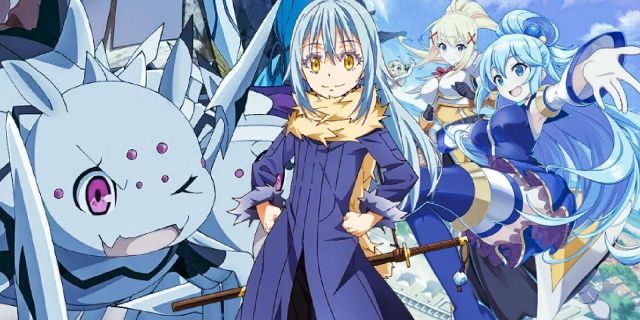As popular as the isekai genre is, it’s just as hated by many due to how prevalent it has become. From light novels and manga to anime adaptations, it seems that almost every series nowadays involves some sort of hackneyed reincarnation into a familiar, generic world. It’s almost impossible to believe how much modern isekai treads the same water, though the creation process of many properties perfectly explains why.
The isekai light novel market is in constant search of new talent and product, the likes of which are scouted more easily and more frequently than perhaps any other form of media. Thus, any old Joe off the street can write one of these books, with merely titillating the senses of the masses being all that’s required. Needless to say, the result is a genre whose quantity has long ago far outpaced its actual quality.
Isekai Talent Is Discovered Through the Wattpad of Japan

Many isekai franchises start out not as published light novels but as self-published web novels. This is done through websites that host these stories, with one of the most prominent being Shosetsuka ni Naro. An outlet for writers to publish their content on the internet, sites such as Naro are essentially the equivalent to Wattpad, albeit with a far better ratio of being published. The site is so well-known for popularizing various isekai works that “Naro” or “Narou” has become synonymous with reincarnation-based stories. Almost 1 million book series are hosted here, including some that have now become major heavy hitters. These include the likes of the somewhat comedic Beast Tamer (which is actually more straightforward fantasy than isekai) and Reincarnated as a Sword, both of which have received anime adaptations.
It’s no surprise that the overwhelming majority of recognizable franchises first spawned by this and similar websites are isekai. Likewise, almost all of them have similarly medieval settings, making it merely the reincarnated forms themselves that set them apart. Given that these books are read online for free, they’re able to gain popularity that they might not have if they needed to start out in a paid capacity. It helps that they employ ridiculously long and descriptive titles in order to get to the point of their premise. Unfortunately, their web novel popularity becomes so immense that it transcends into other media, resulting in the current ubiquity of isekai in manga and anime.
The Low Barrier of Entry for Light Novels Keeps Isekai Alive

While there are certainly some talented writers using venues such as Wattpad or Amazon, it goes without saying that much of the material found there is, in a term, not quite ready for publication. Thus, these Western sites are very rarely instant forms of success, with only the best or most notable seeing tremendous turnover. That’s not the case with isekai web novels, which simply need to stick to the well-established genre formula to quickly find an audience. Merely emulate what’s already worked and add some fan service and attractive characters, and at least some amount of readers will notice the book. From there, this success could lead to a light novel, which could then spawn a manga adaptation and even an anime. In other words, something that wasn’t that great to begin with is rewarded for its mediocrity, joining a slew of similar titles that are simply needed to fill the supposed void in today’s market with more content.
Thus, even so-called isekai deconstructions rarely venture too far outside the beaten path, and those claiming to go against the grain typically do so only in their initial sections. This has resulted in a 2023 Winter anime season that’s filled to the brim with isekai, many of which feature extremely similar-looking characters, settings and stories. For the most part, these can be traced back to their web novels, which were likely scouted on various websites by publishers looking to find something through which to make a quick buck. The tastes of the masses can’t be entirely bemoaned, though the avenues through which these tastes are catered to and the rather forgiving manner by which anyone can have a “success” doesn’t bode well for an anime and manga-consuming public that may be growing increasingly weary of isekai.















Leave a Reply